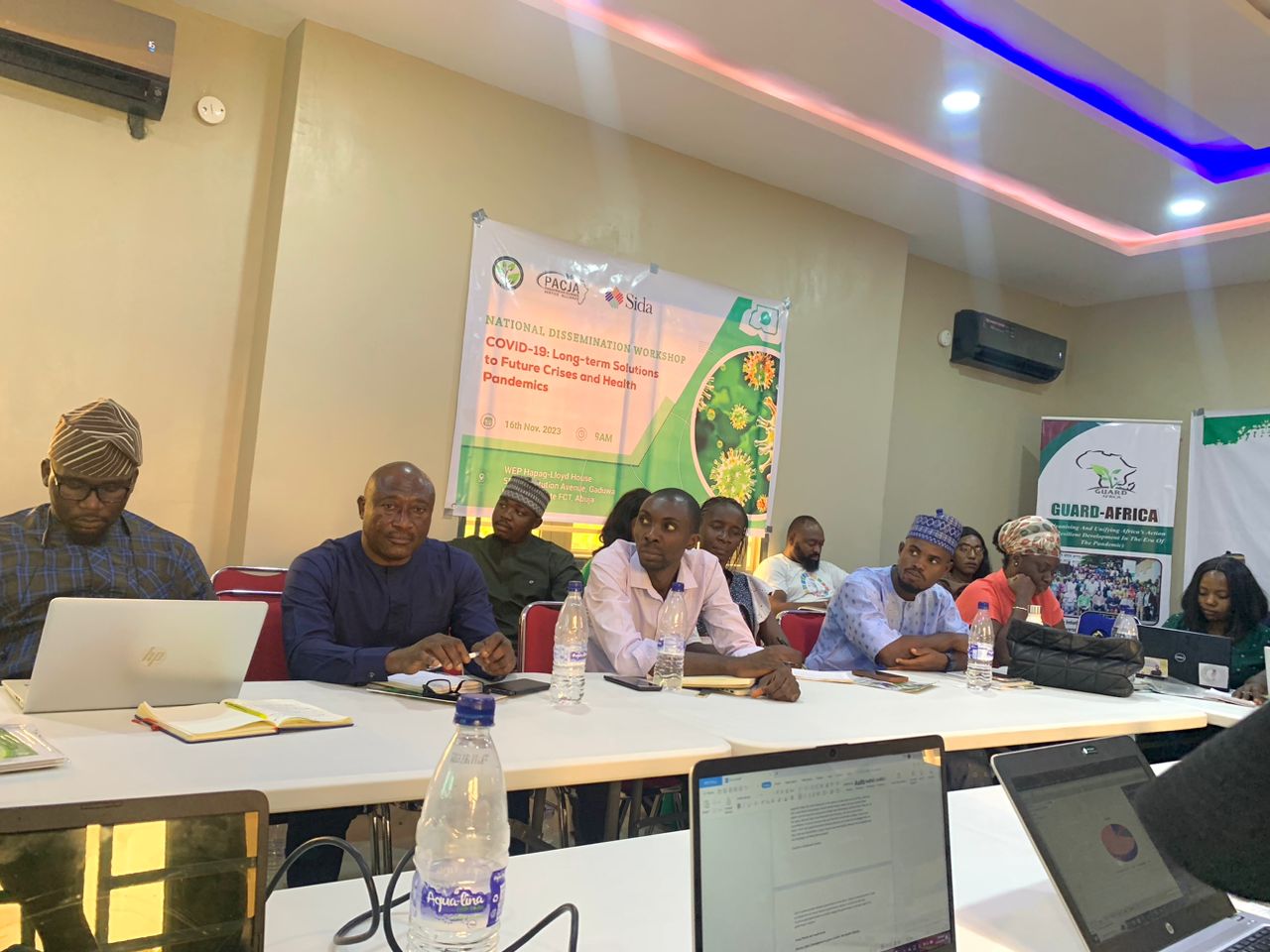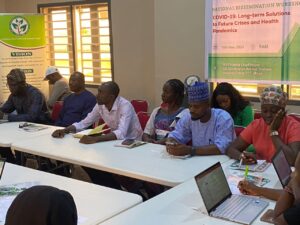
The Climate and Sustainable Development Network (CSDevNet) recently hosts a one-day workshop aimed at advocating for policy reform to drive green growth and amplify climate finance on 16th November 2023 at Abuja, Nigeria.
This focus extended to critical sectors such as energy supply, food security, and transportation.
Attended by over 30 representatives from various Civil Society Organisations (CSOs) and Non-Governmental Organisations (NGOs), the event was a platform for collaborative discourse.
To begin, Miss Joanna Nuhu opened the workshop as she welcomed participants and introduced the speakers. The attendees engaged in a round of introductions, providing insights into their names and the organisations they represented.
Mr Paul Joseph Gwumapan, representing CSDevNet’s National Network Coordinator, delivered the opening remarks.
He underscored the significance of green growth for Nigeria’s sustainable development and stressed the imperative of robust policy development to underpin the shift towards a green economy.
Mr Arome Agenyi from the Center for Learning and Development Africa, initiated his presentation on “Transitioning to Green Growth: Challenges and Prospects for Nigeria” by prompting the audience to reflect on their initial thoughts upon receiving the workshop invitation.

Then, he delved into the challenges and prospects of Nigeria’s transition to green growth, citing sustainable agriculture, renewable energy, and resource efficiency as key drivers. Noteworthy were the identified challenges of poverty, limited access to finance, and deficient infrastructure.
Mr Arome emphasised, “Green growth transition presents a significant opportunity for diversifying the Nigerian economy and promoting sustainability.”
One of the speakers Mr Ibrahim Marvins – a Policy Analyst, emphasised the importance of green growth in fostering income and employment growth through both public and private investments.
He highlighted key catalysts, including reducing carbon emissions, improving energy and resource efficiency, and preventing biodiversity and ecosystem loss. Mr Marvins advocated for inclusivity and policy reforms, stressing the need to restructure existing policies to align with the goals of the green growth transition.
Further speaking, Mr Ibrahim Marvins – a Policy Analyst, Community Health and Climate Change Expert and State Coordinator Helen Keller Foundation, discussed the long-term considerations for COVID-19 recovery, resilience, and sustainability.
He emphasised the necessity of making vaccines available at the local level and integrating them into routine immunizations.
Key takeaways included training and recruitment of healthcare workers, incorporating COVID-19 vaccines into routine vaccinations, building confidence in health services through community health, effective surveillance and response systems, and strengthening logistics and supply.
Following the presentations, a vibrant question and answer session ensued. Notable queries revolved around lobbying for effective green growth policy development, making agriculture appealing to young people, subsidising clean energy while increasing taxes on fossil fuels, and understanding the private sector’s role in green growth policy development.
Comrade Richard Umar, a community resource person (CRP) from Niger state, underscored the importance of states taking charge of distributing electricity and creating green economies for their people.
He commended CSDevNet for expanding its advocacy into different states and local communities.
Mr Aliyu Sadiq, co-founder of Ecocykle Ltd., added that the Federal Ministry of Environment had developed a circular economy roadmap to drive green growth.
Workshop participants identified key challenges, including a predominant focus on activities rather than impact, a substantial data gap in the Nigerian sector, poor inter-relationships among government agencies, the need for effective policy implementation and sanctions, and a lack of funds for implementing green growth policies.
The workshop’s key takeaways emphasised the crucial role of the private sector in green growth policy development.
The need for effective lobbying with government stakeholders, collaboration among various entities, changing the narrative on agriculture to attract young people, subsidising clean energy while increasing taxes on fossil fuels, and developing an environmentally friendly energy mix were also highlighted.
Proposed solutions included balancing gender representation in policy development, global stocktaking synergy, water conservation and management, local data generation and storage, a shift towards impact-driven programs, increased capacity development, technology application in agriculture, development of performance metrics for government stakeholders, and advocacy for collaboration and synergy among these stakeholders.
Additionally, there was a call for increased advocacy on energy access.
The Training Workshop on Policy Development for Nigeria’s Transition to Green Growth provided a valuable platform for participants to gain insights into the challenges and prospects of transitioning to a green economy.
The event facilitated the exchange of ideas and experiences, fostering a collective understanding of how to promote effective green growth policy development and implementation.
